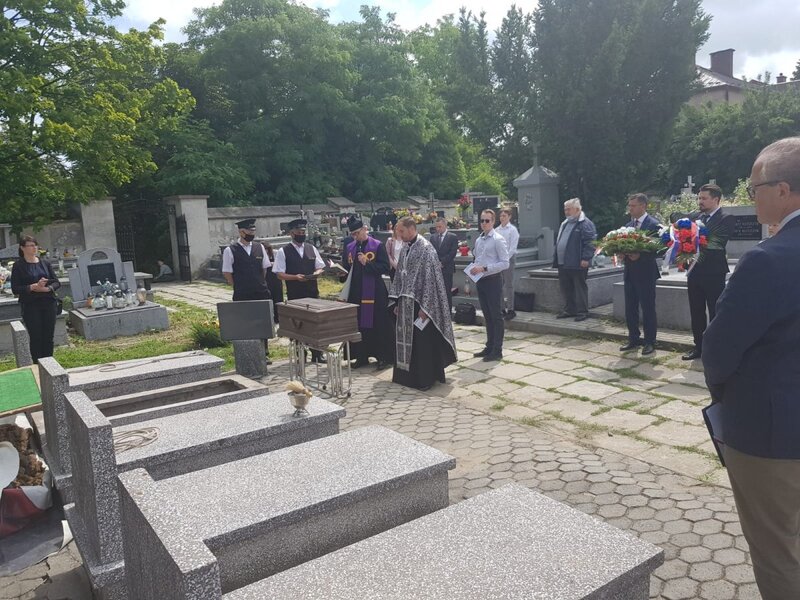The remains were unearthed in the course of the S7 expressway construction in southern Poland. With them, elements of uniform were found, including buttons. The soldier probably perished on 16 January 1945; according to the Red Army sources, ten servicemen died at that particular time and place, and were buried in a common grave nearby. In 1948, the bodies of the ten were moved to the Soviet military section of the Miechów cemetery. However, the eleventh man lay unnoticed, covered with soil on the bottom of a trench, until the 21st century.
His identity remains unknown: from 1942, order no. 376 forbade the issue and use by the Red Army personnel of any dog tags. Similarly, nothing is known about his ethnicity; statistics point to Russian, but he may have been Lithuanian, Belarussian or member of any other nation or minority that got impressed into the Red Army ranks. The man’s religious affiliation is equally a mystery - wearing symbols associated with religion was forbidden.
Nevertheless, the experts tried: they ran anthropological tests, which answered no questions, and studied the records, coming to a conclusion that the man must have served in 994th Regiment of the 286th Rifle Division, because that was the unit that operated near Smroków (where the original mass grave was found) in January 1945. That’s all we know, or suspect to know, about the soldier.
The remains were placed in a special casket provided by the IPN, transported to the Miechów cemetery and interred, with Catholic and Orthodox Christian prayers for the dead said over the grave. Sergei Manko, Russian Deputy Consul from Cracow, who was invited to the ceremony, was impressed with the arrangements.
Regretfully, the Institute of National Remembrance cannot help but notice that the Russian Federation is returning to methods of distortion of facts known from the darkest times of Soviet totalitarianism. The revival of the Stalinist narrative about WWII is accompanied by false accusations against countries such as Poland of destroying cemeteries and graves of Soviet soldiers.
The Russian Federation is well aware of the fact that Soviet cemeteries in Poland are preserved and well looked after, often better than such cemeteries in Russia. Since regaining independence in 1989 and shaking off subordination to the Soviet Union, the Republic of Poland has never allowed any graves of Soviet soldiers to be destroyed in its territory.
The Institute of National Remembrance consistently emphasizes that Poland treats every frontline death with respect, which also applies to the personnel of foreign armies. Arranging a dignified funeral is always an opportunity to reflect on the fate of individual people. This cannot in any way change the assessment of Stalin's policy towards Poland, aimed at preventing the reconstruction of the independent Polish state, re-annexing the eastern territories of Poland, and imposing on Poles a communist regime under full domination of Moscow.
